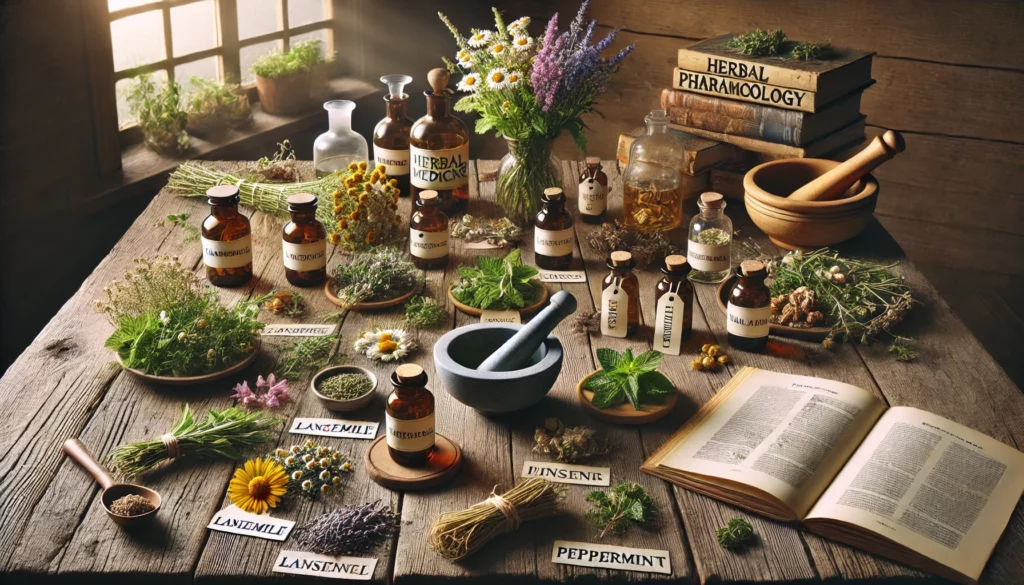
1️⃣ Introduction
For thousands of years, humans have utilized the healing power of nature to treat illnesses and promote well-being. Medicinal herbs are a central component of traditional medicine worldwide and also play a significant role in modern pharmacology. Their mechanism of action is based on bioactive compounds that can specifically affect the body. This report provides an overview of the pharmacological knowledge of nature concerning medicinal herbs and their medical applications.
2️⃣ The Science Behind Medicinal Herbs
Medicinal herbs contain a variety of secondary plant compounds that exert pharmacological effects. These include:
- Alkaloids (e.g., morphine, caffeine) – often act as pain relievers or stimulants.
- Flavonoids (e.g., in chamomile, ginkgo) – have anti-inflammatory and antioxidant properties.
- Saponins (e.g., in ivy) – have expectorant and antimicrobial effects.
- Tannins (e.g., in oak bark) – promote wound healing and have astringent properties.
- Essential Oils (e.g., in peppermint, lavender) – possess calming, antibacterial, and circulation-promoting effects.
3️⃣ Important Medicinal Herbs and Their Pharmacological Effects
🌿 Valerian (Valeriana officinalis)
- Effects: Calming, anxiolytic, sleep-inducing
- Applications: Sleep disorders, nervousness, inner restlessness
🌿 St. John’s Wort (Hypericum perforatum)
- Effects: Antidepressant, anti-inflammatory, mood-enhancing
- Applications: Mild to moderate depression, wound healing
- Note: Interactions with medications (e.g., antidepressants, contraceptives) should be considered
🌿 Chamomile (Matricaria chamomilla)
- Effects: Anti-inflammatory, antispasmodic, antibacterial
- Applications: Gastrointestinal complaints, skin irritations, colds
🌿 Ginseng (Panax ginseng)
- Effects: Immune-boosting, performance-enhancing, stress-reducing
- Applications: Fatigue, concentration difficulties, general weakness
🌿 Peppermint (Mentha x piperita)
- Effects: Antispasmodic, pain-relieving, digestive-supporting
- Applications: Irritable bowel syndrome, headaches, colds
4️⃣ Traditional vs. Modern Use of Medicinal Herbs
- Traditional Medicine: Medicinal plants are often used in the form of teas, tinctures, or compresses.
- Modern Medicine: Extracts from medicinal herbs are processed into phytopharmaceuticals and are subject to standardized manufacturing procedures.
- Integrative Medicine: The combination of herbal and conventional medical therapy is becoming increasingly significant.
5️⃣ Scientific Research and Challenges
- Pharmacological studies confirm many traditional uses of medicinal herbs.
- Drug interactions should be considered (e.g., St. John’s Wort & antidepressants).
- Quality control and dosage are crucial for the efficacy and safety of herbal medicines.
6️⃣ Conclusion
Medicinal herbs are a valuable part of natural medicine and have proven therapeutic effects. While traditional applications have developed over centuries, modern research increasingly confirms their pharmacological benefits. The responsible use of medicinal herbs can provide a natural and effective means of supporting health but should always be done with medical expertise.